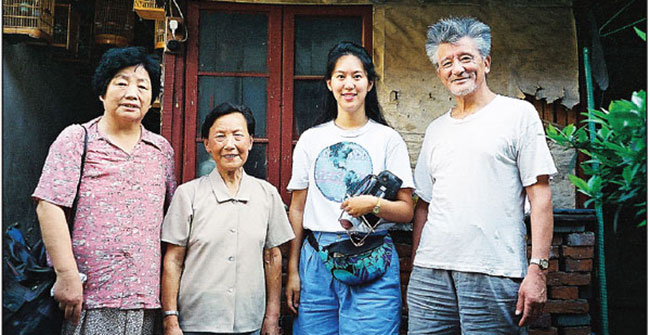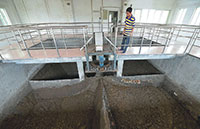China may help Good Samaritans
By Li Yao (China Daily) Updated: 2012-07-24 07:12A Good Samaritan regulation has been placed on the legislative agenda to better protect those who lend a hand, the China Foundation for Justice and Courage said on Monday.
The Ministry of Public Security has submitted the draft for review by government departments and received support from the State Council Legislative Affairs Office, said Guo Yuying, secretary-general of the foundation.
Some cities such as Shenzhen have established Good Samaritan regulations, but Guo said a national regulation is needed because local governments apply different criteria to recognize and reward acts of bravery, Xinhua News Agency reported.
People who are badly injured or even disabled because of their heroic deeds are in particular need of legal protection and financial assistance. The General Office of the State Council will soon release a notice demanding greater efforts to help them, said Shuai Fugui, deputy-secretary-general of the foundation.
There are many cases where people are hurt or disabled while trying to help others and are left unable to work. More coordinated efforts are needed from multiple departments including civil affairs, finance and public securities to give these people financial support, Shuai said.
The new regulation should introduce uniform standards so that a Good Samaritan is recognized across the country and is entitled to adequate compensation and long-term assistance for severe cases, instead of a one-time award, said Guo Yanjun, a lawyer in Beijing.
Guo has been offering free legal services to Shi Fengxia, a widow who badly injured both her arms when she pushed two people out of the path of a falling window in Beijing's Xicheng district on March 29, 2010. The two people pushed to safety received minor injuries.
That act later brought Shi two certificates: one for being a Good Samaritan and the other for third degree disability. Despite about 90,000 yuan ($14,000) in compensation from the civil affairs office in Xicheng district, she had to rely on donations to receive treatment at a hospital in Beijing.
Without any other income, she returned to her native Xilin Gol League in the Inner Mongolia autonomous region and only goes back to Beijing occasionally for rehabilitation. Her 19-year-old son is going to college this year. Her sister and brother-in-law, both in their late 60s, take care of her.
Shi took the case to court, holding the tenant and the owner of the 17th-floor apartment from where the window fell responsible for the incident. As the tenant, surnamed Fan, denied any wrongdoing and the owner, Fan Juan, had been abroad, the case took an extraordinarily long time to resolve. In 2011 the court ruled the defendants pay 120,000 yuan in compensation to Shi.
In June, Shi received the first payment of 12,000 yuan, but the prospects of future payments at 3,000 yuan a month are uncertain.Back in Inner Mongolia, authorities in her hometown have denied her request for continued financial assistance because the incident occurred in Beijing, Guo said.
Good Samaritans like Shi should be encouraged to offer a helping hand and be given proper care when they can no longer work due to injury in their selfless rescue attempts, he said.
Guo said the legal procedures and compensation process for people like Shi should also be simplified, instead of letting them wait for months and sometimes even years for the case to settle.
Shi said she does not regret her heroic actions, but finds the process of asking for government assistance difficult.
"I don't regret saving other people. Because of my intervention, two lives did not perish before my eyes. I can sleep at night without nightmares," Shi said.
"I did not ask for too much. I just want some basic treatment when my condition worsens so that I won't be living in agony."
liyao@chinadaily.com.cn
- CPC unveils major economic tasks to boost growth
- Advanced destroyers boost combat capability of PLA
- How apocryphal speech of Nobel laureate became a viral hit
- Delay 2nd baby, experts say
- China mulls court services in English
- CPC releases document to intensify political education
- Courts to improve services for ethnic litigants
- Air pollution jumped to alarming levels last month
- Officials admit to faking economic figures
- New anti-terror guidelines released







